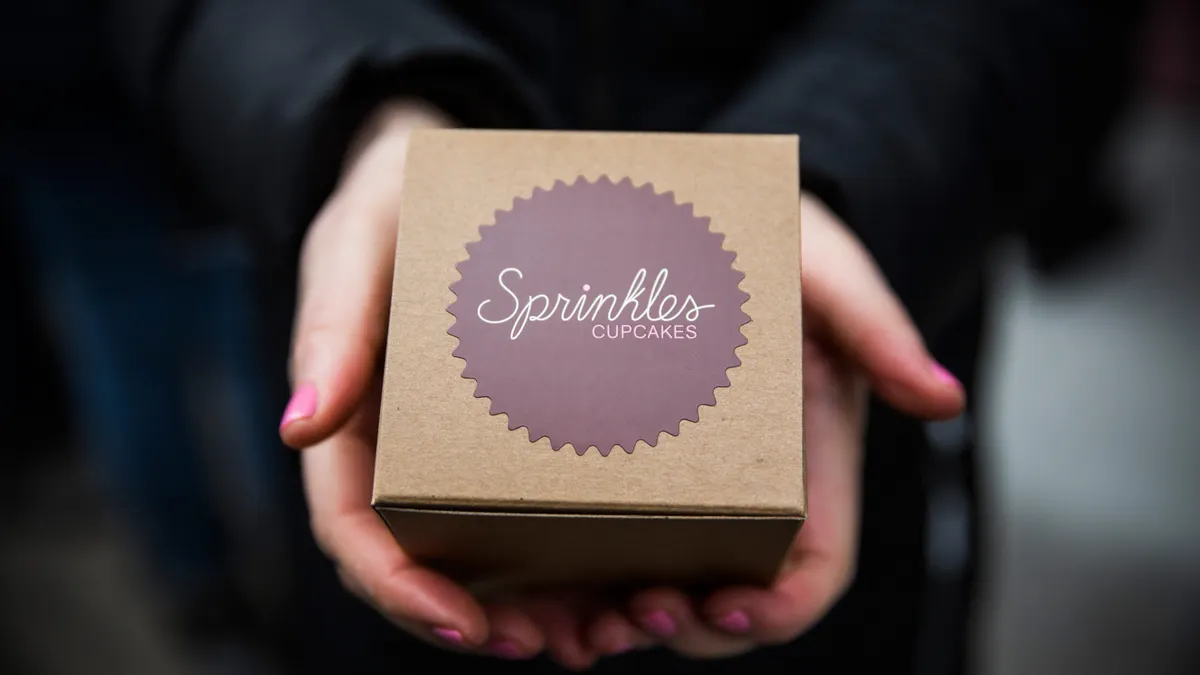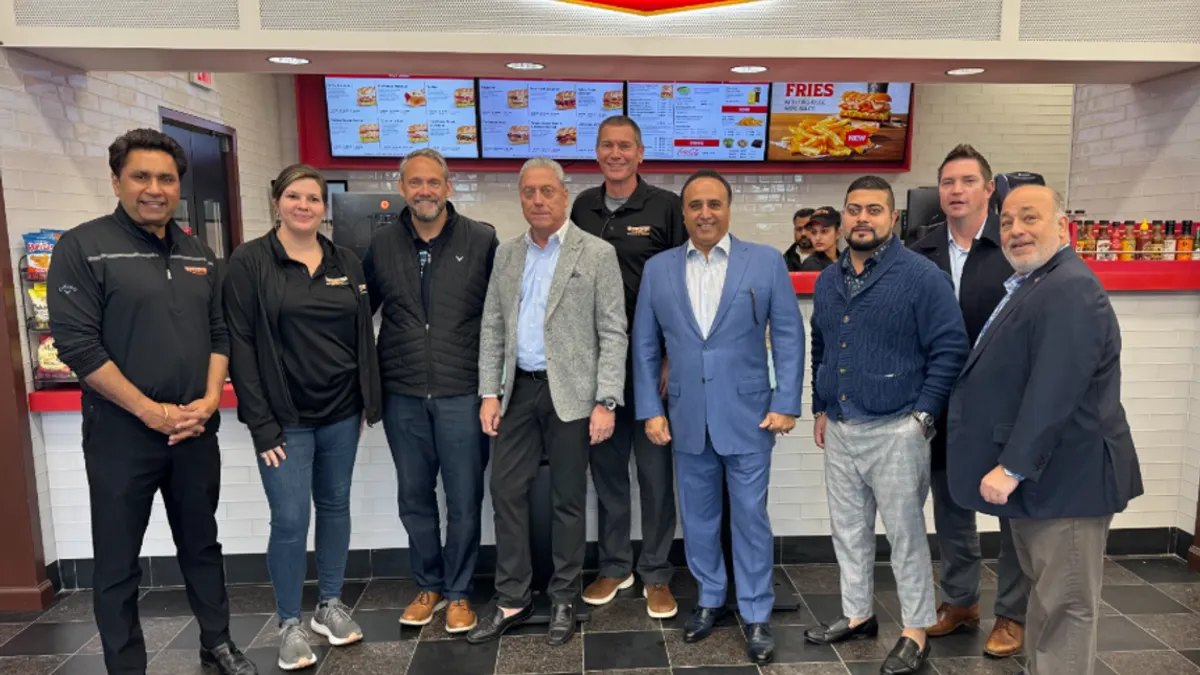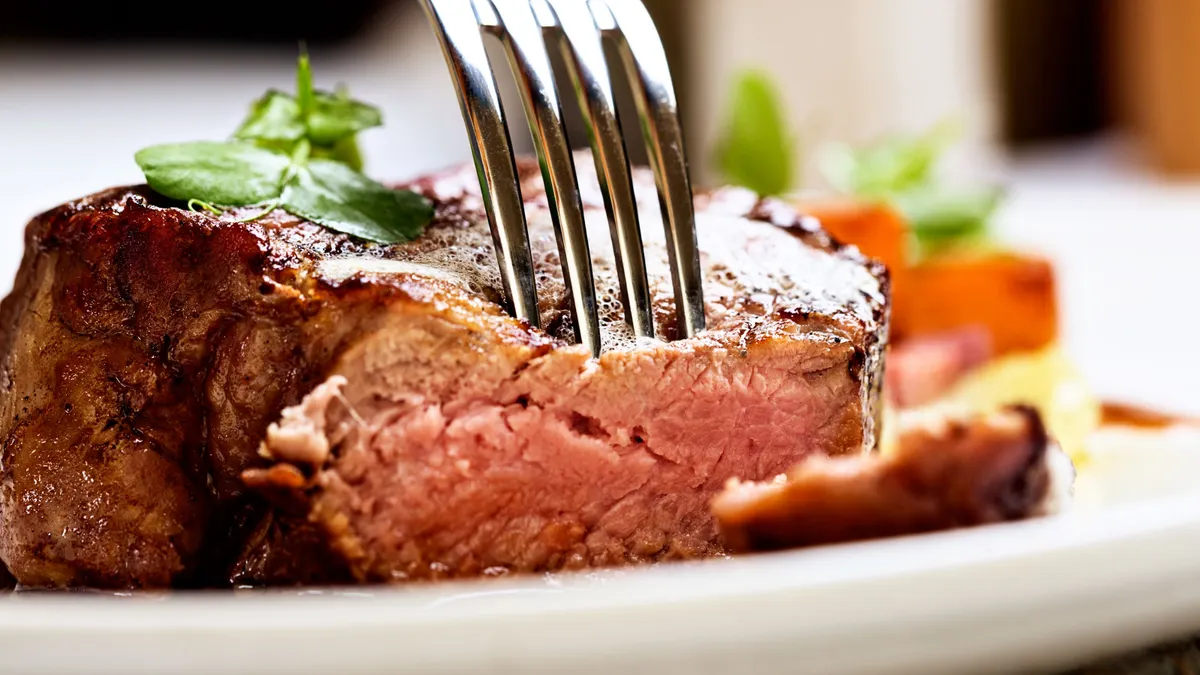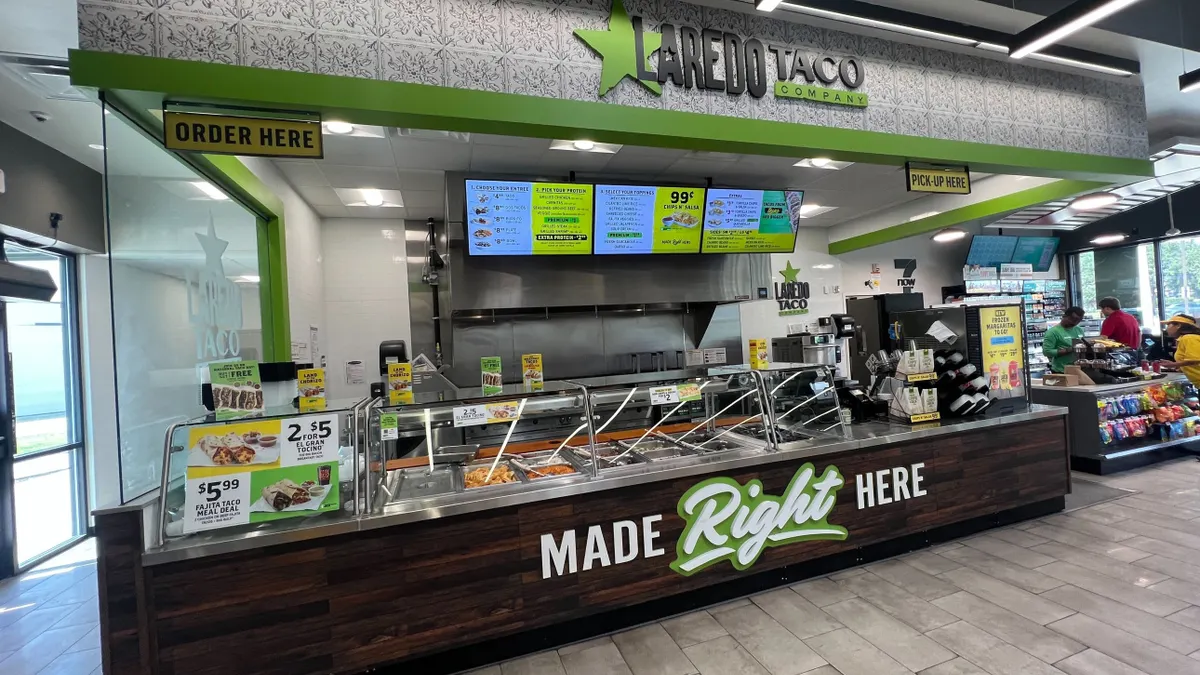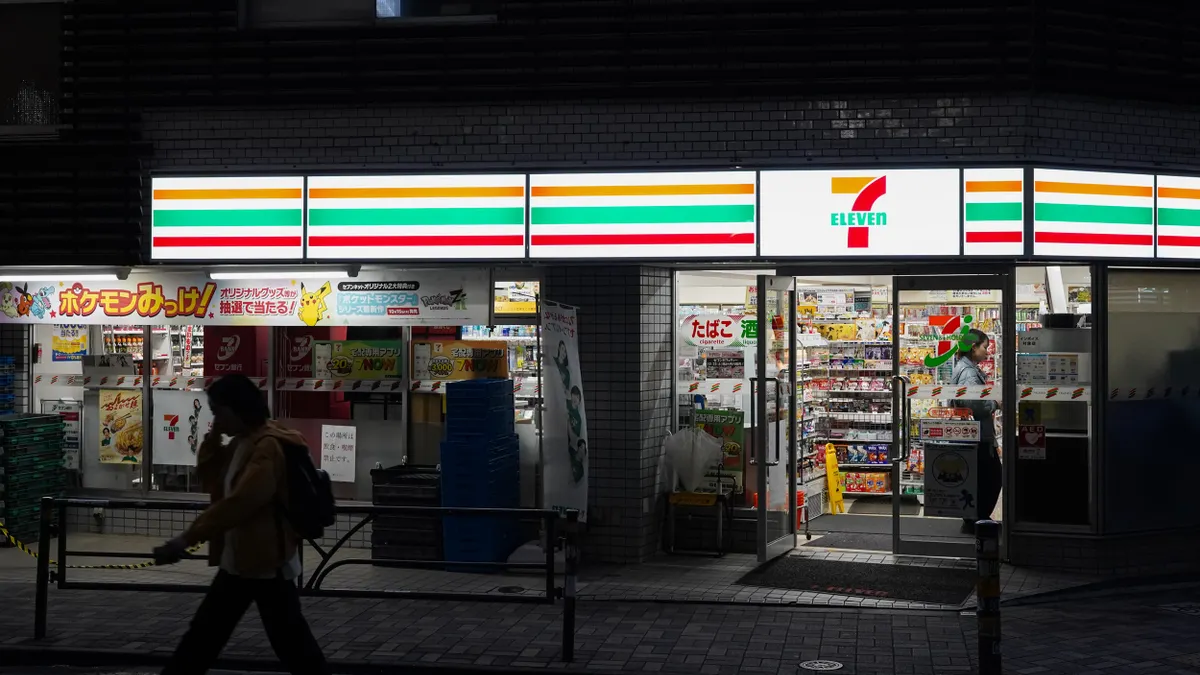For Marcus Burley, playing in the NFL led to some once-in-a-lifetime experiences, including winning a Super Bowl ring with the Seattle Seahawks in 2014. But his five-year career as a professional athlete was also a means to begin a career in the restaurant industry.
"The whole time I was in the NFL, I was thinking of ways to invest my money after I was done playing football and that is what led me to franchising," Burley told Restaurant Dive.
Burley looked at gyms and other restaurants, but quickly determined that fast casual chain Saladworks was his favorite brand to franchise. He was familiar with the brand, which was a popular spot for healthy eating on his University of Delaware campus. He also appreciated the simplicity of the business plan — it was a proven blueprint that had been franchising for over 30 years.
"I've had the product before. I've seen it thrive," he said. "I felt like it was a no-brainer."
Burley now plans to open his first Saladworks in a suburb of Charlotte, North Carolina, during the first quarter of next year. More could be in the works if this location does well.
While Burley is just starting out, he's not the only former athlete who has built a career in the industry.
Athletes have become an integral part of the franchising industry in restaurants and retail, and their paths to franchising reveal what it takes to create and sustain a chain restaurant.
Shaquille O'Neal became a Papa John's franchisee and board member earlier this year. Former Indianapolis Colt Donnell Thompson has had a 25-year career, starting with McDonald's and most recently opening franchises for Checkers & Rally's. Former NFL player Mac Haik invested in fast casual seafood chain Slapfish in September.
"Athletes are goal-oriented people who strive to be successful," Saladworks President and CEO Kelly Roddy told Restaurant Dive. "They make great candidates for restaurants."
Burley's business acumen, passion and love for the brand added to his qualifications as an ideal franchisee, Roddy said. Good owners will engage with the community and exchange ideas with guests, he said. Burley's connection to his local community and his name recognition could help make him a hometown hero as well, Roddy said.
"I think we would be really fortunate and blessed to have athletes a part of this brand," Roddy said. "Athletes are very health-focused and health-minded. We are a brand that would be really aligned with that value."
Saladworks is currently focused on growing concentrically from the Northeast down. In addition to its North Carolina location with Burley, it is looking into Atlanta and Florida markets and will be opening in Colorado this year and will develop out its newest markets before going into additional untapped states, Roddy said. The minimum financial requirements for A Saladworks are liquid assets of at least $125,000, a net worth of $350,000 and an initial investment ranging from roughly $193,000 to over $452,000, according to the company's website.
Famous Toastery CEO and founder Robert Maynard said that athletes are primed to become successful franchisees because they have experience running systems and operating from a playbook, he said.
That is one of the reasons why former NFL player Justin Griffith was an ideal fit to open a Famous Toastery.
"Good athletes can lead and be led," Maynard said. "Athletes in general exploit these qualities and they can be very successful in business in general."
Griffith brought a good work ethic as well, Maynard said.
Maynard's casual breakfast brand is starting to franchise and has several deals in discussion, with a handful of openings planned next year, he said.
When considering a Famous Toastery franchisee, Maynard asks potential franchisees to work in a kitchen on a Sunday before they sign an agreement.
He said his brand is much more difficult to run than a traditional casual restaurant because the food is fresh, he said. Orange juice is squeezed daily, turkeys are roasted in the kitchen and the potatoes are prepared, boiled and roasted in-house. There also is a higher expectation of customer service. Every waiter helps every patron no matter table coverage, he said.
On the other hand, working at Famous Toastery isn't as strenuous as working at the average chain because it only serves two meals a day and staff are done by 4 p.m. This makes finding employees easier, since the restaurant only needs to cover one shift, he said.
The company isn't trying to grow rapidly, though, preferring to have quality over quantity, he said. And finding ideal franchisees is definitely a part of that plan. Its minimum financial requirements is $250,000 in liquidity and $500,000 in net worth, according to the company's website.
Building a sustainable career in franchising
While former professional athletes have a lot of the ideal qualities baked into their personalities, they also provide a fresh perspective on franchising.
Burley said researching a target market and brand compatibility is key. That means understanding the existing competition and speaking with three to five franchise operators to learn how the business is going and what kind of support corporate provides, he said.
"Talking to the franchise owners and hearing first-hand … is one of the biggest keys that will give you a good idea on the company," he said.
During the process, he said patience is also a trait to rely on, especially when securing real estate. He strategically focused on a location near corporate office parks.
For former pro-footballer Donnell Thompson, who built a 25-year career in the industry, building a franchise is hard but rewarding. Thompson started out at McDonald's and has franchised with Del Taco, Denny's and Zaxby's. His most recent venture has been to open multiple Checkers & Rally's franchises in the Birmingham, Alabama, area with his business partner, former New England Patriots player Ron Wooten.
Throughout his career, Thompson developed a passion for the work, which has kept him in the business even though he works six days a week from 5 a.m. or 6 a.m. to 10 p.m. or later, he told Restaurant Dive. Franchising also helped him create a lifestyle for him and his family that he prefers to his football days, he said.
"At the end of the day, you have to like this business," Thompson said. "It's not an easy business, but it could be very rewarding."
He also likes that it is a people business that happens to be selling food, he said. That means developing and growing people to make sure the brand and guest experience are successful.
"You've got a lot of people who are just starting out with their first jobs or this is just the job that they love to do and they don't make a ton of money at it," Robert Bhagwandat, Checkers & Rally's director of franchise development, told Restaurant Dive. "Understanding how to treat those people to make sure they understand that they're an important member of the team inside that restaurant, to retain that talent, it's really critical to the success of that business."
That also translates into providing good customer service, a skill that was particularly attractive to Checkers & Rally's, Bhagwandat said. Because the QSR receives about 85% of its business with the drive-thru, operators have to be especially keen on service because there is no dining room and little other opportunities to connect with customers.
"You've got to treat your guests well so they continue to support you and do business with you," Bhagwandat said.
"At the end of the day, you have to like this business. It's not an easy business, but it could be very rewarding."

Donnell Thompson
Checkers & Rally's franchisee and former NFL player
When opening restaurants, Thompson will connect with the community and the local government, which helps build excitement over what the new investments will bring, Bhagwandat said.
"He has completely wowed us with everything that he has done," Bhagwandat said. "He takes a challenge and it's like we dare him and he's like 'bring it on.'"
Checkers & Rally's isn't a beginners brand and requires someone with experience in building a brand and running a restaurant, Bhagwandat said. In addition to providing good customer service, franchisees have to be fast and accurate since the company is heavily reliant on the drive-thru and doesn't have a dining room.
These are important considerations as the 885-unit chain works toward reaching 1,200 units by the end of 2021.
"We've got a very aggressive, but responsible growth strategy in place," Bhagwandat said.
Even with these plans, the company won't just sign a franchise agreement and go, Bhagwandat said. It wants to make sure that franchisees have the right resources in place, especially former athletes who are no longer playing sports and have the time to build something and learn something new, he said. The minimum financial requirements to franchise are higher than other brands previously mentioned, with a minimum net worth of $750,000 with at least $250,000 liquidity required per per location. The initial investment ranges from over $200,000 to $945,000, according to the company's website.
Before management will talk about the investment, they will sit down and talk about building an organizational structure, discuss the type of people expected to be brought in and how and where a potential franchisee will recruit them. The company will also help interview those people to make sure they are good potential business partners.
"We don't just let them go out and make a decision on their own," Bhagwandat said. "We provide the support, from an interview perspective, provide them with feedback and let them know these are the pros and cons of the candidates."
Checkers & Rally's will train potential franchisees at a corporate restaurant for four to five weeks, covering every position in the restaurant from the grill to the cash register, Bhagwandat said. Applicants also spend a few weeks running shifts so they can better understand the management side of daily operations.
For former athletes or entertainers that may have more capital available, the company will provide insights on multi-unit management to see if that is a path worth following, but it isn't for everyone.
"It's great if you have got all this money up front, but it may not be the best idea for you to try and open three restaurants at a time unless you have the ability and the wherewithal on how to make that happen," he said.
This wasn't a particular challenge for Thompson, who has run multiple units throughout his franchising career and will be rolling out new Checkers and Rally's within the coming weeks.
Whether it's a Checkers & Rally's or a Del Taco or McDonald's, Thompson has built a sustainable career in the industry.
"I've been able to make a living and a lifestyle out of the franchising business and I love it," he told Restaurant Dive. "I think I'm probably now with one of the better brands that I love. ... So I'm enjoying the dream."






